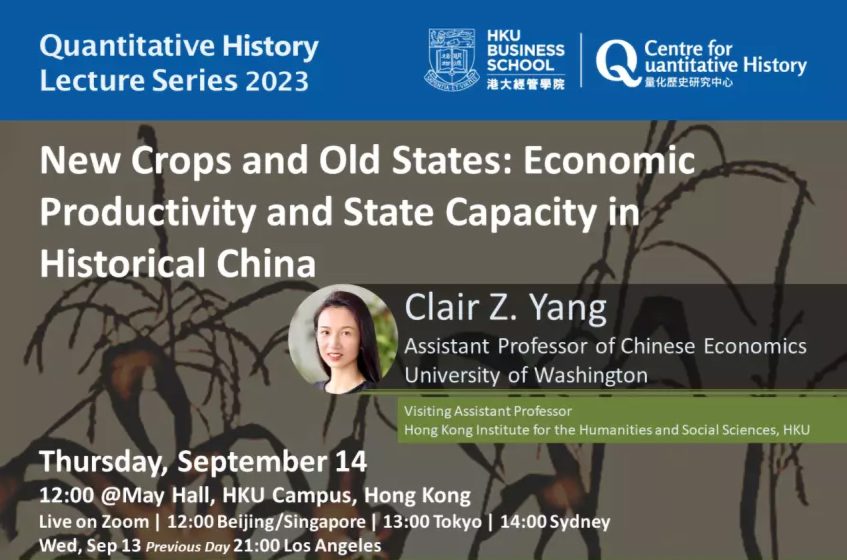
New Crops and Old States: Economic Productivity and State Capacity in Historical China
New Crops and Old States: Economic Productivity and State Capacity in Historical China
Most conventional theories of state origin regard economic development as a catalyst for state formation. However, new scholarly works increasingly emphasized the appropriability of output, rather than mere productivity, as the vital determinant. Clair Z. Yang of the University of Washington, in her latest study, leverages the introduction of two New World crops—maize and sweet potato—into historical China as a natural experiment. Maize, being a cereal grain, is highly appropriable, while sweet potato is not. During this Quantitative History Lecture, Clair Z. Yang will present her findings that reveal while both new crops contributed positively to population growth, their impact on state capacity differed significantly. Maize demonstrated a substantial and positive effect on state fiscal revenue, whereas sweet potato led to a decline in state capacity. Her results are consistent with the prediction of a state-locality bargaining model and underscore a multi-dimensional relationship between economic productivity and state-building.







